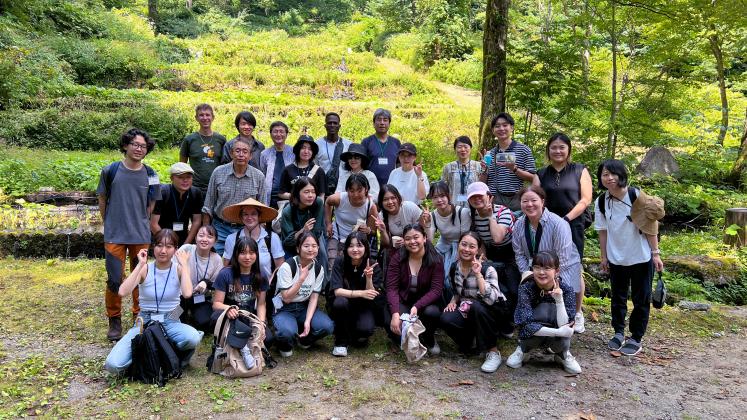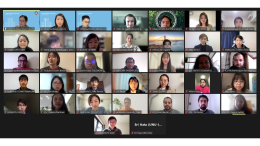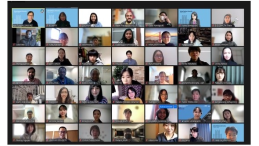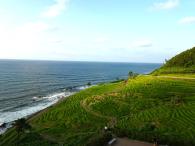On 21–24 August 2024, UNU-IAS organized a special session of the UNU Global Seminar in Ishikawa Prefecture, Japan, to explore innovation in sustainable development by learning from local initiatives. Focusing on the topic “Towards a Sustainable Planet and Society: Learning Resilience and Innovation from Noto, Kanazawa and Hakusan”, it addressed ongoing disaster recovery and resilience-building efforts after the 2024 Noto Peninsula Earthquake. It engaged 21 participants from Japan and five other countries — including researchers, and undergraduate and postgraduate students.
The programme included lectures, fieldwork and discussions on biodiversity, climate change adaptation and disaster recovery. Participants learned from local examples in Hakusan, Kanazawa and Noto, with a focus on integrating traditional knowledge and nature-based solutions. These include creative disaster recovery and prevention, conservation, restoration and sustainable utilization of urban nature. Participants also learned about biodiversity conservation and sustainable development through activities at the Mount Hakusan UNESCO Biosphere Reserve and Hakusan Tedorigawa UNESCO Global Geopark.
The seminar strengthened participants' understanding of sustainable practices, empowering them to apply these insights in their regions. It promoted international collaboration on sustainability, particularly in biodiversity conservation and climate resilience, and expanded the professional networks of participating students to support collaboration between different universities and disciplines.
History of the UNU Global Seminars
The UNU Global Seminars began in Japan in the Kanto area in 1985 with the first Shonan Session, and in the Kansai area in 1995 with the Kobe Session. Since then, UNU Global Seminars have been held in Hokkaido, Kanazawa, Kobe-Awaji Tohoku, Okinawa and Shimane-Yamaguchi. Sessions have also been held abroad, including in Seoul, Republic of Korea in 2003. Detailed information is available here.




